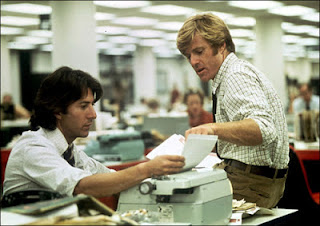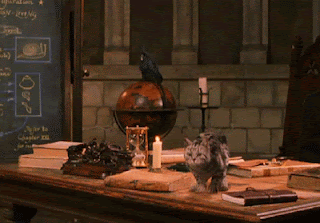“Who, exactly, gives us the right to kill? If
killing is wrong, then why are we allowed to kill?” ~Keith Schroeder
That’s
exactly what I’ve been asking myself while reading this book, another John
Grisham’s legal story focuses on death penalty of an innocent man by a corrupt
government. Donté Drumm was eighteen years old teenager with a bright future
career as football star, when he was accused of raping and killing Nicole
Yarber, a high school cheerleader, whose body had never been found. For nine
years Robbie Flak—the defense lawyer—had been appealing a lot of motions against
the false conviction to release his innocent client.
Keith
Schroeder was a Lutheran priest in Kansas. One day a convict in parole with a
brain tumor came to his office wanted to make a confession of a murder, for
which Donté Drumm would face a death penalty in seven days. Knowing that he was
dying, Travis Boyette—the real killer of Nicole—wanted to save the innocent
man.
From there
the story flowed quite fast, as usual with Grisham. While Donté was counting
his last days on earth, there was a lot of commotion around his case. Robbie Flak and his law firm frantically
worked on motions, appeals and all legal maneuvers on the last minutes; Keith sped
up his car with Boyette to arrive at Kansas to submit Boyette’s confession; the
Yarbers were busy to get attention from the world by appearing in a reality
show; while the police were busy handling riots and demonstrations—either pros
and cons—on Donté Drumm’s coming exectution.
Social
injustice was the central theme of this story. Donté Drumm was not only wrongly
accused by his school mate out of envy; he was victim of a corrupt system. The
detective who wanted brighter career forced the innocent teenager to confess a
crime he never committed. And as there was no evidence at all—Nicole’s body was
never found—the police hired convicts to make false testimony for a change of
freedom. The prosecutor had a love affair with the judge and had a control over
the jury, so the trial ran as he had wanted. The governor was in the middle of
election campaign, that he and his team were pleased to death-penalizing as
many as convicts before the election to increase votes (this is another proof that people still like to kill others).
It made me
sick to think how people loved to kill others. From all characters in this
book, only Travis Boyette who had committed a murder—and Boyette was indeed an
interesting study of how to transform an innocent kid to a villain. But cruel
and wicked as he was, at one point Boyette repented. Not only confessing, Boyette
was willing to make effort to save Donté. Why did he do that? He could have
been silent for his last months of living and let Donté Drumm took the blame,
then, no else would know. I debated with myself, did Boyette do that to let the
world know that he was the real murderer—as some sort of recognition? I chose
to believe that somehow his conscience—that had been sleeping for a long time—suddenly
knocked his heart; and God reminded him to repentant.
Ironically,
they who were supposed to work for justice, had killed Donté Drumm by their
cowardice, greediness, indifference and ignorance. How could they still believe
Donté was the killer after Robbie had yelled about the false confession and so
on for nine years? And when Boyette had finally confessed, they all closed
their ears, made excuses and stuck on their opinion that the trial had been
fair. I think, all of them were murderers too, just as Boyette. With Boyette, we
could understand how his moral became so low, it’s because of how he was
educated and bad treatment he received when he was a child from his uncle; and
his crime was a passionate one. But what about the authorities? They were
members of churches, yet they had methodically let an innocent man be killed.
Can you see the irony?
Race issues
was also a big issue here—my oh my, when will people realize that we are all
equal, because we are all God’s creation? Really, it’s frustrating sometimes to
think how educated people can be so narrow-minded. In this story, I was
disgusted with Reeva Yarber—Nicole’s mother—who liked to show off her sadness
by sobbing, crying, and mourning loudly in public; as if the more people saw
her sadness, she could do something better for Nicole. Could it be that Reeva
hated Donté that much because he was black? I could not help myself thinking
what would be her reaction if the murderer was, let’s say, the Governor’s white
and rich son?
At the end, The
Confession is not only a legal thriller, it’s a media Grisham had used to
criticize about social injustice at one side, and death-penalty at the other.
Really, I can’t understand how modern society is still fond of death-penalty?
That concept itself is unfair—who authorize us to kill others who are equal to
us? And when the legal system that arranges it is corrupted, there’s something
so wrong there.
Four stars
for The Confession—I did not grant the perfect 5—because the last chapter was
rather anti-climax. The most emotional part should be Donté’s execution, but
compared to The Chamber (it’s also
about death-penalty) this one is less emotional.
Some quotes I can’t help sharing here…
“I was there when he
was born, and I’ll be there when he dies.”
(Roberta Drumm—when Robbie asked her to not witnessing the
execution)
“Prisons are hate
factories, Pastor, and society wants more and more of them. It ain’t working.”
(Travis Boyette to Keith Schroeder)
“You’re nothing but a
rat in their lab, a disposable body to be used as proof that their experiment
is working. An eye for an eye, each killing must be avenged. You kill enough
and you’re convinced that killing is good.”
(Donté Drumm’s reflection on death-penalty system)
“They don’t care about
guilt or innocence, Momma, all they care about is showing the world how tough
they are. Texas don’t fool around. Don’t mess with Texas. Ever heard that?”
(Donté Drumm to his mother--Fact: For seven years Texas had
executed two hundred prisoners!)
~~~~~~
*I read 2011 Dell Export Mass Market edition paperback*
*This book is counted
as*
2nd book for 2013 TBR Pile Challenge
1st book for 2013 TBRR Pile Mystery ReadingChallenge












